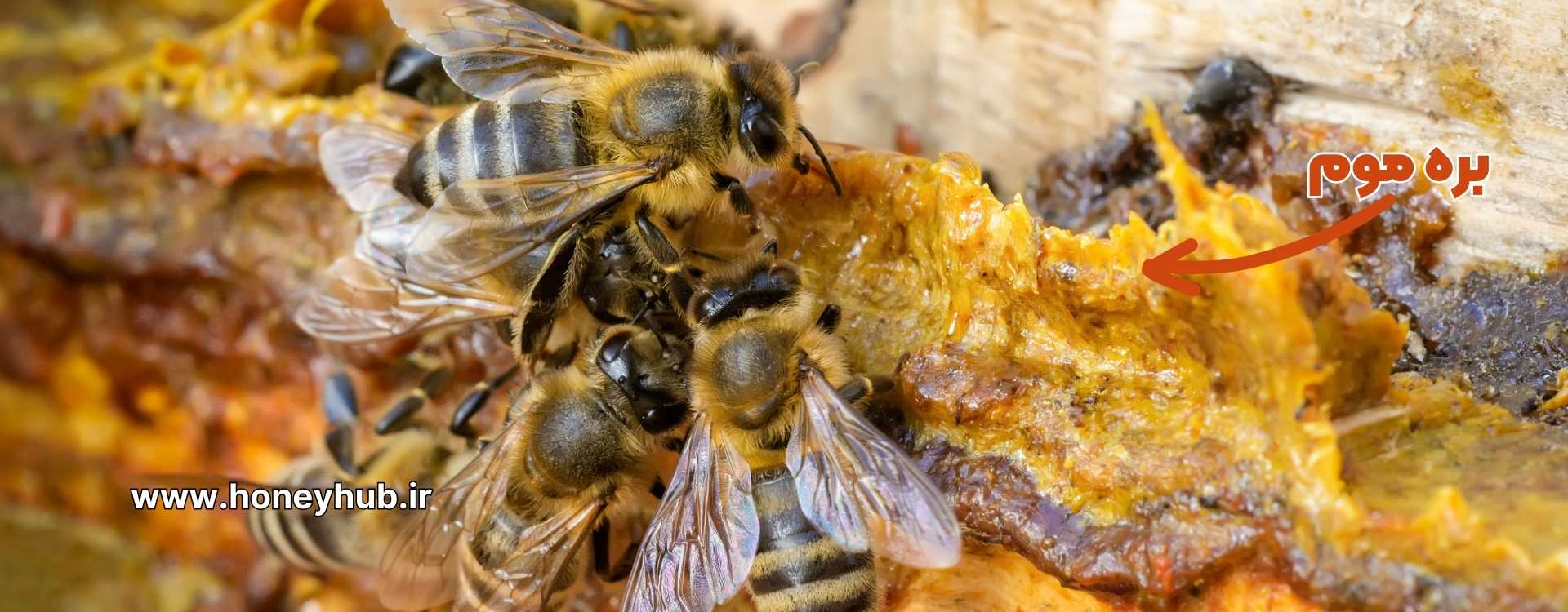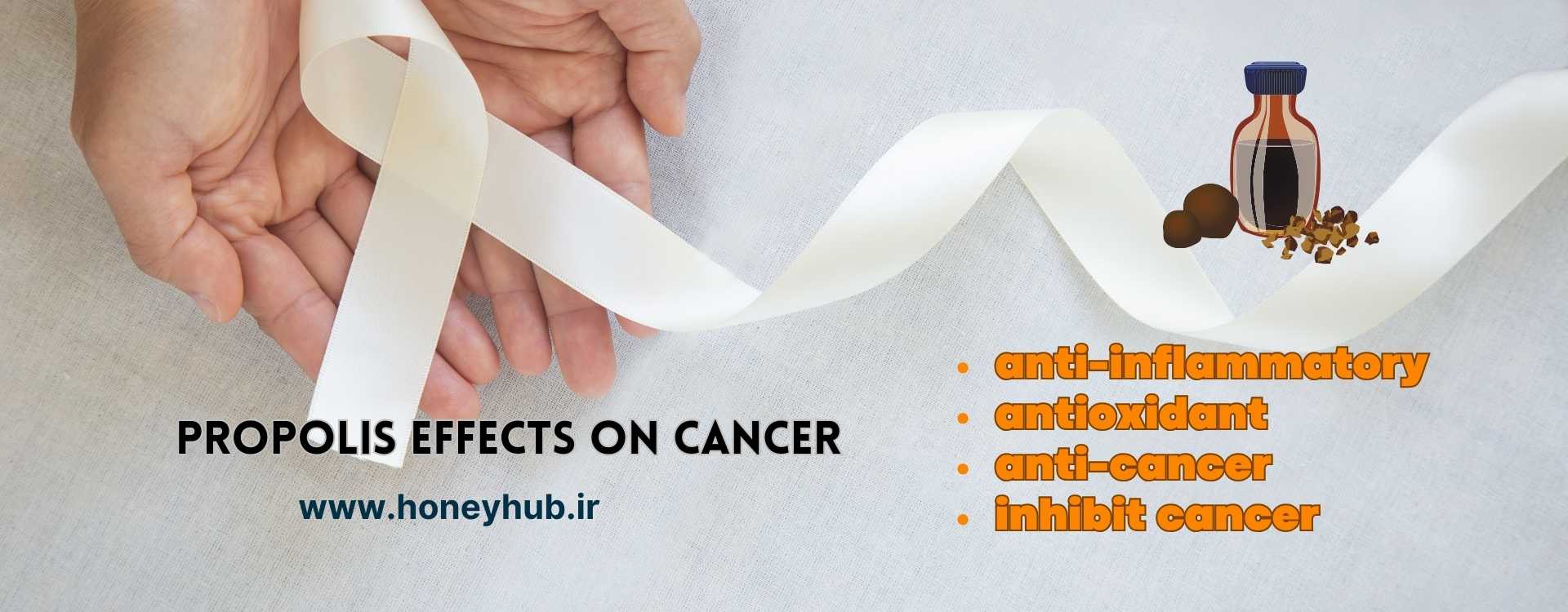Does your mozzarella refuse to stretch or just burn? The secret is science. From "pasta filata" to the crucial role...
The Health Effects of Propolis and Its Uses
What is propolis?
Did you know that honey is not the only thing bees produce? Bees also produce propolis from the sap on conifers or evergreens. When they combine the sap with their secretions and wax, they create a sticky, greenish-brown product that is used as a coating or to seal the seams of the hive; this is propolis.
Thousands of years ago, ancient civilizations used propolis for its medicinal properties. The Greeks used it to treat abscesses. Assyrians put it on wounds to fight infection and help the healing process.
The composition of propolis can vary depending on where the bees live and the trees and flowers they have access to. For example, European propolis will not have the same chemical composition as Brazilian propolis. This can make it difficult for researchers to draw general conclusions about its health benefits and broaden its medicinal properties.
Therapeutic compounds in propolis
Researchers over 300 have identified the compound in propolis. These diverse compounds are the origin of different effects.
Polyphenols: Polyphenols are antioxidants that help protect cells from damage.
Flavonoids: Flavonoids are a type of polyphenols that have antioxidant, anti-inflammatory, and antimicrobial properties.
Fatty acids: Fatty acids help maintain healthy skin and hair.
Vitamins and minerals: Propolis contains small amounts of vitamins and minerals such as vitamin C, vitamin E, calcium and zinc.
In particular, propolis contains Polyphenols are called flavonoids. plants produce flavonoids as a form of protection themselves. They are commonly found in foods that have antioxidant properties, including:
- Fruits: berries, citrus fruits, grapes, apples, peaches, tomatoes
- Vegetables: spinach, broccoli, kale, onion, bell pepper, tomato
- Nuts: almonds, walnuts, hazelnuts, pistachios, peanuts
- Legumes: lentils, beans, peas
- Beverages: green tea, black tea, dark chocolate
Flavonoids act as antioxidants and can help protect cells from damage. They may also help reduce the risk of heart disease, cancer, neurodegenerative diseases, and other diseases.

Medicinal properties and Propolis treatment
It is believed that propolis has antibacterial, antiviral, antifungal and anti-inflammatory properties. However, scientific research on propolis is limited. Researchers aren't sure why, but the bee product protects against bacteria, viruses, and fungi.
Antimicrobial Properties
One of the key benefits of propolis is its antimicrobial properties. It contains various compounds, such as flavonoids, phenolic acids, and terpenes, that have strong antimicrobial effects. These properties make propolis effective against various bacteria, viruses, and fungi. It can be used to support the immune system and fight infections.
Anti-inflammatory effects
Propolis also has Anti-inflammatory effects. It can help reduce inflammation in the body and reduce symptoms associated with inflammatory conditions. This makes it beneficial for people suffering from conditions such as arthritis, asthma, and skin disorders.
Wound Healing
Propolis contains a special compound called pinocembrin, a flavonoid that acts as an antifungal agent. These anti-inflammatory and antimicrobial properties make propolis useful in wound healing. One study found that propolis can help people with traumatic burns heal by speeding up the growth of new healthy cells. of steroid cream in reducing mast cells in oral surgical wounds. Mast cells are associated with inflammation and slow wound healing.
Herpes and genital herpes
Ointments containing 3% propolis, such as Herstat or Coldsore-FX, may help speed healing and reduce symptoms in both cold sores and genital herpes sores.
One reputable source found that topically applied propolis three times a day, Cold sores heal faster than no treatment. Researchers have found that propolis cream not only reduces the amount of herpes virus in the body but also protects the body from future sores.
Anti-cancer and fighting tumors
Based on research findings, it has been suggested that propolis also plays a role in the treatment of some cancers. According to a study of reliable sources, some of the anti-cancer effects of this substance include:
- preventing the proliferation of cancer cells
- reducing the possibility of the cell becoming cancerous
- Blocking pathways that prevent cancer cells from messaging each other
These studies also showed that propolis could be a treatment Complement - but not the only treatment - for cancer. Another study showed that consuming Chinese propolis can be a useful complementary therapy in treating breast cancer due to its anti-tumor effects on breast cancer cells.

Strengthening the immune system
Propolis can be Used as a natural immune booster. Consuming propolis regularly or as a supplement can help strengthen the immune system and support overall well-being. This can be especially helpful during times of increased susceptibility to infection.
Where to get propolis?
You can buy propolis at pharmacies or health food stores. Topical forms include creams, ointments, and a lotion. Propolis can also be taken orally, in tablet, liquid extract, and capsule form. HoneyHub is proud to introduce you to an in-house patented formulation. You are shopping for a healthy product. , hygienic, and with a health certificate, buy from the link below.
Dosage of propolis
Currently, there is no recommended medical dosage, as more research is needed. One study recommends a daily concentration of approximately 70 mg, which is not an FDA recommendation. Manufacturers may suggest a dosage on the product label. Before taking any supplement, ask your doctor if propolis is safe for you
Honey-propolis product
Leave a comment
Log in to post comments
Comments
بره موم از کجا می تونم تهیه کنم؟
By: ماندانا شیخی On 2023-03-08سلام. لطفا می گین از کجا می تونم بره موم پیدا کنم من یه مشکلی دارم فکر کنم استفاده کنم ببینم چی می شه
Replied by: Somayyeh Amini On 2023-03-08






















Latest comments